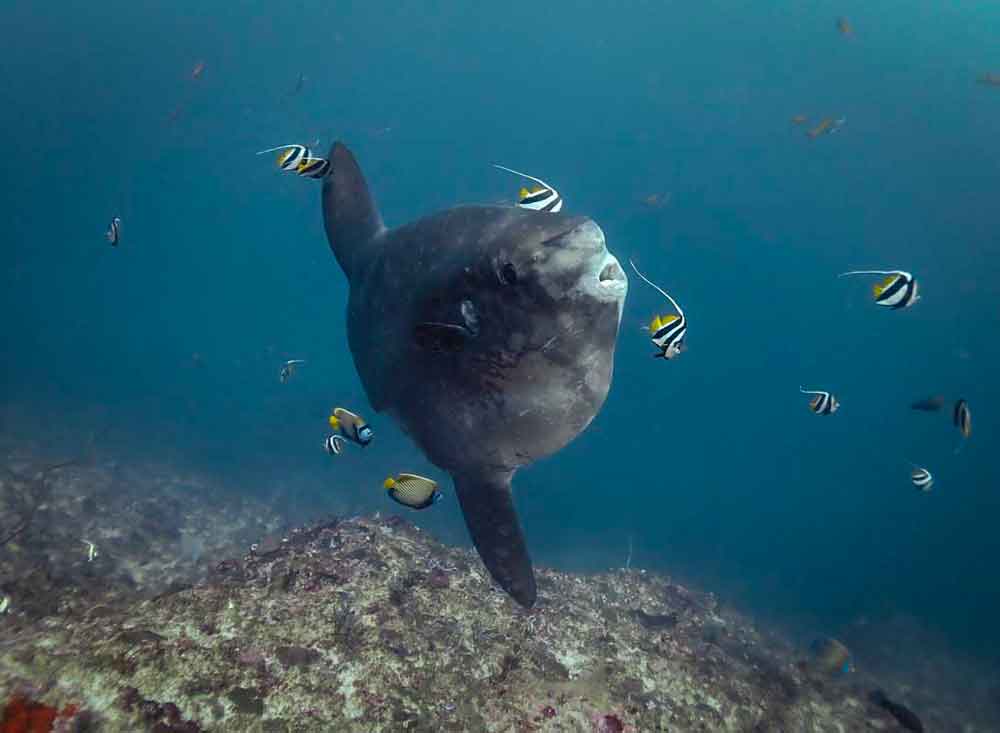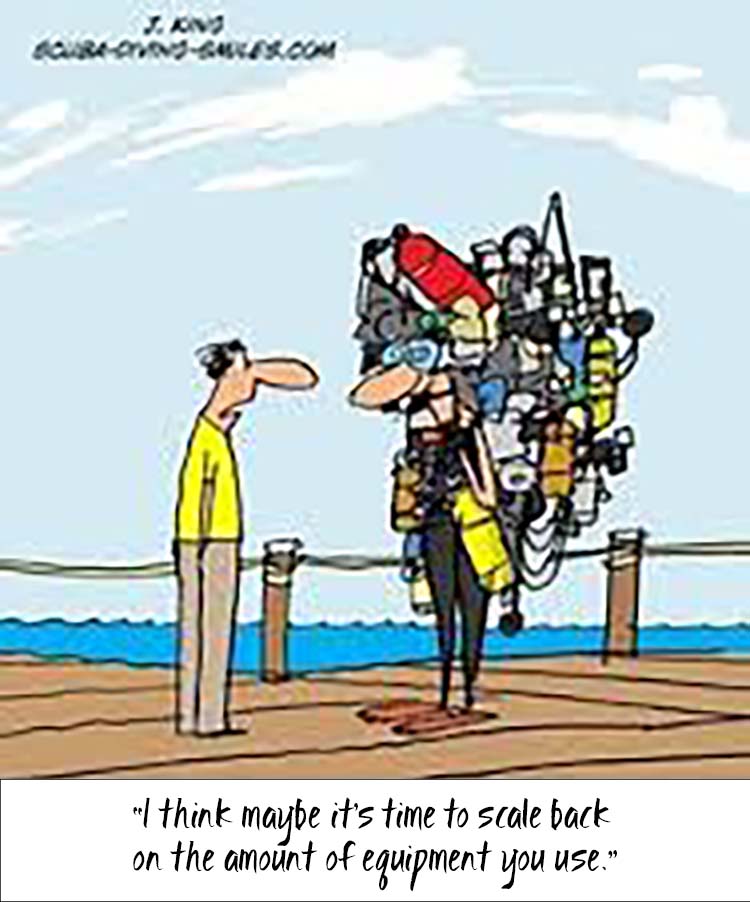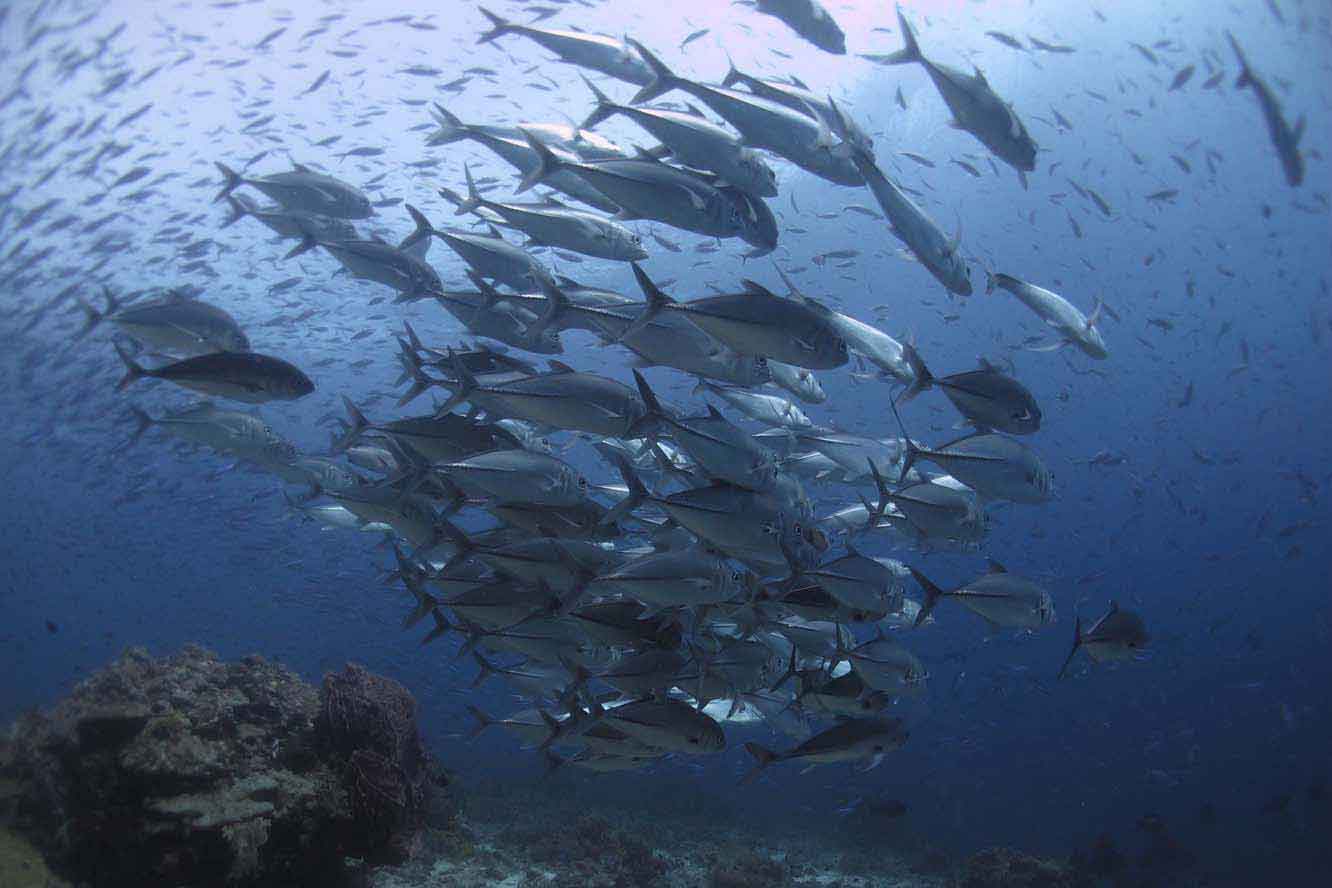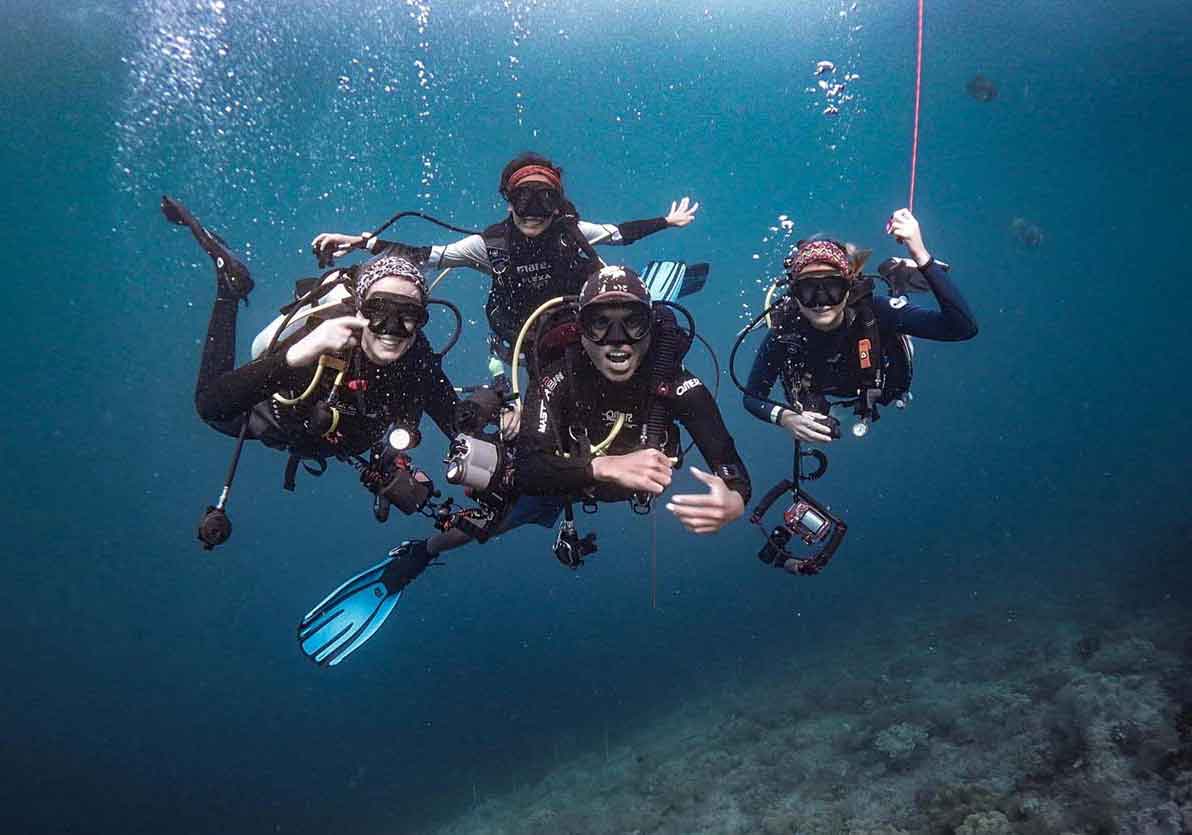Why you should go deep!
The words ‘deep diving’ may strike fear into even the best divers, but is it as scary as you think? Getting your PADI Deep Diver specialty can actually make you a safer, more aware and more conservative diver. This course broadens your knowledge of diving and diver safety. It’s not just about going deeper!
WHAT IS A DEEP DIVE?
First of all, let’s clarify what a ‘deep dive’ actually means. A deep dive is considered to be any dive that is between 18m and 40m. If you have done your PADI Advanced Open Water Course, you will have done a deep dive already (to a max of 30m)!
Being certified as a Deep Diver gives you more thorough training in safety procedures. It teaches what to do in ‘out of air’ situations or if you accidentally run into ‘deco’. You learn these basic procedures in your Open Water Course, but with the Deep Diver Specialty you look at these things in much greater detail. Not only can it make you a safer diver but it can open up more possibilities. Whether you’re accessing deeper sites or shipwrecks, or just seeing marine life that inhabits the depths, the Deep Specialty gives you more. If you’re visiting Nusa Lembongan and hope to meet the famous Sunfish or Mola Alexandrini, then going deeper will increase your chance to see one!

Our friend the Mola Alexandrini loves it down deep
HAVE A PLAN
It’s important to remember that there should always be a reason to go deeper. You should always have a valid objective. Going deeper just for the hell of it, to get to 40m just to show your friends, and being reckless can be dangerous. Proper training is a must and a modicum of common sense and diver awareness must be used whenever you plan to dive deeper

Don’t get carried away with the new toys!
ANY SPECIAL CONSIDERATIONS?
As for any dive, planning is essential. Even more so with deep diving as you need to consider any special considerations.
Is your dive buddy/buddies ready to take a deep dive? Do they have the experience? Are they mentally ready for it?
It’s good to push yourself to expand your experience but only when you (and your buddy) feel prepared.
You need to consider the dive conditions. Is there strong current or swell? Is there a lack of illumination or an overhead environment?
You want to choose an easy site which will involve the least amount of physical activity.
Is the water very cold and do you have appropriate exposure protection?
Diving in colder conditions means you should plan your dives more conservatively to minimise stress on the body.
GET ORGANISED
Make sure you have had your equipment serviced regularly and that you have a backup air source. Not only is this safer but it will be required should you need to make an emergency decompression stop. Maybe a torch will be useful if the sun isn’t shining or you are not diving in the tropics.
Also think about your location and how close/far you are from emergency care. Do you have the necessary equipment on the boat such as oxygen should there be a problem.
These are all things to bring to your attention not only on a deep dive, but actually in every dive!
Learning these things during the course is a part of what will actually make you a better diver in general even if you don’t plan to do a lot of deep dives in the future.

Get a unique perspective on underwater life
WHAT DOES IT FEEL LIKE?
Deep diving can be mentally challenging for many divers. The thought of being so far underwater can be quite stressful and if you don’t know the divers personality, you may not notice their stress.
Have you ever accidentally exceeded your planned depth and been shocked when you suddenly realized you were deeper than you thought?
Many people think they are actually shallower than they are, especially in tropical clear waters. This is why people so easily make mistakes and exceed their planned depth. Another great reason you should take this course and further your skill and divers awareness.
When diving in great conditions like we have in Lembongan, good visibility, sunlight and warm water… going deep can feel like a breeze! As long as you stick by the limits, be considerate of conditions and everything we mentioned in the previous section deep diving can be a safe and fun activity.
You might even see something cool!

A safe diver is a happy diver
WHAT ABOUT NARCOSIS?
Nitrogen narcosis is something to be aware of when deep diving. While nothing to worry about, it can certainly affect your judgement. In fact, many people experience Narcosis when diving below 25m though they may not realise it as the effects are mild. However, diving below 35m can make the effects more pronounced and most people will experience a change in mental state. This my appear as euphoria, like getting the giggles for no apparent reason. It may appear as paranoia and feeling trapped or short of breath. In either case, knowing how to handle the situation quickly is very important. In the specialty you learn how to deal with gas narcosis and what to do if it happens to you or a buddy. Once you know how to recognize it and take the necessary steps it is very easy to overcome.
SIGN ME UP!
The course runs over 2 days and includes 4 dives. You will do some independent study with your deep diver manual, answer some knowledge review questions which you will later review with your instructor. Over the 4 dives you compete several skills in relation to deep diving and learn what to do in difference emergency situations.
How deep will you go? On dive 1 and 2 you will dive between 18m and 30m, dive 3 and 4 you can dive to a maximum of 40m. But you don’t have to reach the maximum, the conditions and diver comfort will be the final deciding matter on depth.
Drop us a line at info@sirendiving.com for more information or visit our contact page on the website
Have you heard the Sirens call?
